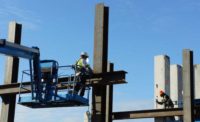Two years after AECOM paid $200 million to settle litigation with investors over its traffic forecasts in a now-defunct public-private-partnership tunnel concession in Brisbane, Australia, participants—revenue forecaster Arup, among them—in a similar P3 toll-road dispute on a nearby failed project, are headed for federal court after mediation broke down earlier this month.
The Australian unit of the U.K. design firm was sued in 2014 by PPB Advisory, a receiver company set up after the 2013 failure of Brisbane’s Airport Link Tunnel concession.
The project, developed by the BrisConnections consortium, was finished in 2012 but went bankrupt the following year, with debt of more than $2.4 billion. According to court documents, original project financier Macquarie Group contends that traffic reached only a quarter of what Arup forecast.
PPB seeks about $1.6 billion from Arup, citing the too-optimistic traffic and revenue projections. Meanwhile, according to legal documents and media reports, Arup is pursuing a cross-claim against investment bank Macquarie, contending that it should face liability, too.
In a statement, Arup declined to discuss dispute details but said it is “vigorously defending the claim and denies any wrongdoing.”
But one source with knowledge of the case documents says they show that Arup disputes the plaintiffs’ contention that it “had no reasonable basis for its forecast.”
According to the source, Arup’s forecasting model “is used throughout the world,” and the firm “stands by that.” Court documents contend that Arup “was transparent about this … [and] is an easy target,” the source added.
Macquarie also declined comment. But according to court documents, it argues that Arup “is running the proportionate liability” defense.
In the court filings, the firm contends that “no claim has been brought against [it] in relation to its financial advice.” They further show that “BrisConnections’ receivers have filed documents … which defend Macquarie’s financial advice.”
However, in a report earlier this month, The Financial Times says that Macquarie’s 2008 initial public offering for BrisConnections “fell almost 60% on the first day of trading after analysts weighed in with bearish forecasts for its projects and general concern in the middle of the global financial crisis about funding long-term infrastructure.”
Traffic forecasting consultant and former URS executive Raymond Tillman says he is “continually amazed that firms contemplating major financial involvement in a project do not absolutely require an independent evaluation of existing forecasts.”
According to case participants, the trial is set to last until late November, but a judicial decision could take up to six months.
William Reinhardt, publisher of industry publication Public Works Financing, says the AECOM settlement and others have caused some firms to alter forecasting approaches or even exit that niche.
But, he says, “Arup obviously believes it has a better chance in court than AECOM did.”





